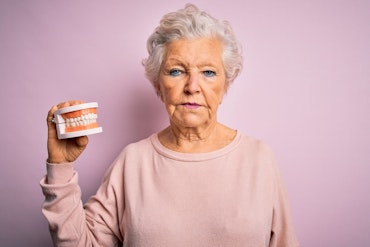New Alzheimer’s drug proves effective, yet risky
The new drug, donanemab, significantly slowed cognitive decline in people with early symptoms of Alzheimer’s disease by 35 percent, compared to the placebo.

Pharmaceutical group, Eli Lilly and Company announced positive results of the new drug trial for people living with Alzheimer’s disease. (Source: Jonathan Weiss via Shutterstock)
Key points:
- The new drug, donanemab, significantly slowed cognitive decline in people with early symptoms of Alzheimer’s disease by 35 percent, compared to the placebo.
- Participants on donanemab had 40 percent less decline in ability to perform activities of daily living at 18 months and a further 39 percent lower risk of progressing to the next stage of disease.
- Two trial participants died as a result of dangerous swelling in the brain and a third died after experiencing swelling.
“Over the last 20 years, Lilly scientists have blazed new trails in the fight against Alzheimer’s disease […] We are extremely pleased that donanemab yielded positive clinical results with compelling statistical significance for people with Alzheimer’s disease in this trial,” says Daniel Skovronsky, M.D., Ph.D., Lilly’s chief scientific and medical officer, and president of Lilly Research Laboratories.
The brain swelling cited as a cause of death for the two participants was an adverse side-effect from donanemab treatment, although only 1.6 percent of the 1,734 trial participants experienced severe swelling. However, the overwhelming success rate is something of a breakthrough and unlikely to be a hurdle for Food and Drug Administration approval in the United States, given that a similar treatment, lecanemab, was approved in January of this year.
“We are encouraged by the potential clinical benefits that donanemab may provide, although like many effective treatments for debilitating and fatal diseases, there are associated risks that may be serious and life-threatening,” says Mark Mintun, M.D., group vice president Neuroscience Research & Development at Lilly, and president of Avid Radiopharmaceuticals.
Director of the Australia Dementia Network at the Univeristy of Melbourne, Professor Christopher Rowe, tells the Royal Australian College of General Practitioners that the risks are to be expected given the nature of the treatment.
Professor Rowe says that donanemab has the added benefit of less frequent dosing and seems to be more effective than lecanemab in removing amyloid (which progressively builds up and is responsible for cognitive decline in Alzheimer’s disease).
Full results of the TRAILBLAZER-ALZ 2 study will be presented at the Alzheimer’s Association International Conference in July and submitted for publication in a peer-reviewed clinical journal.























Comments